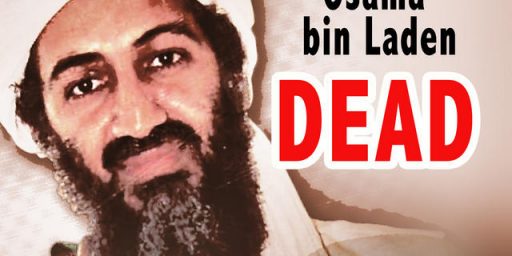Bush: Tough Talk Has ‘Unintended Consequence’
Bush: Comments had ‘unintended consequence’ (CNN)
President Bush says he now sees that tough talk can have an “unintended consequence.”During a round-table interview with reporters from 14 newspapers, the president, who not long ago declined to identify any mistakes he’d made during his first term, expressed misgivings for two of his most famous expressions: “Bring ’em on,” in reference to Iraqis attacking U.S. troops, and his vow to get Osama bin Laden “dead or alive.” “Sometimes, words have consequences you don’t intend them to mean,” Bush said Thursday.
“‘Bring ’em on’ is the classic example, when I was really trying to rally the troops and make it clear to them that I fully understood, you know, what a great job they were doing. And those words had an unintended consequence. It kind of, some interpreted it to be defiance in the face of danger. That certainly wasn’t the case.” On July 2, 2003, two months after he had declared an end to major combat in Iraq, Bush promised U.S. forces would stay until the creation of a free government there. To those who would attack U.S. forces in an attempt to deter that mission, Bush said, “My answer is, Bring ’em on.”
In the week after the September 11 attacks, Bush was asked if he wanted bin Laden, the terrorist leader blamed for the attacks, dead. “I want justice,” Bush said. “And there’s an old poster out West, that I recall, that said, ‘Wanted, Dead or Alive.”‘ Recalling that remark, Bush told the reporters: “I can remember getting back to the White House, and Laura said, ‘Why did you do that for?’ I said, ‘Well, it was just an expression that came out. I didn’t rehearse it.’
“I don’t know if you’d call it a regret, but it certainly is a lesson that a president must be mindful of, that the words that you sometimes say. … I speak plainly sometimes, but you’ve got to be mindful of the consequences of the words. So put that down. I don’t know if you’d call that a confession, a regret, something.”
While Bush is correct, I’m actually not sure what the “consequences” of his rhetorical excess were in these instances. Certainly, they irritated his domestic opponents and some in Europe. But it’s inconceivable to me that the terrorists in Iraq would have refrained from attacking our soldiers if Bush hadn’t challenged them to do so or that bin Laden, not having been called out, would have turned himself in.


